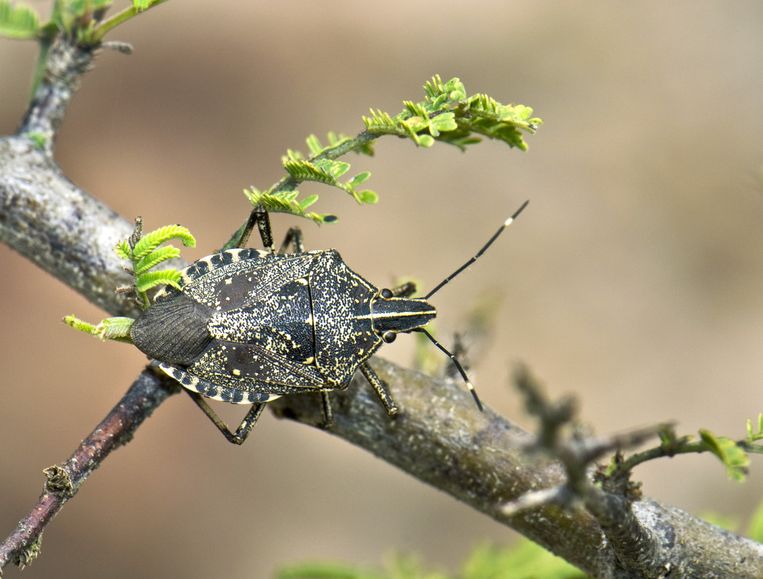Another one of those messages stuck with me for a moment. Australian authorities have returned a giant cargo ship loaded with 6,500 new cars from South Korea to Korea. Not that there's anything wrong with nearly a thousand kias and 5,500 Teslas aboard a sea giant, no. Not human migrants, but insects, yellow-spotted stink bugs to be exact.
This is not the first time this has happened. In 2018, the same ship, the Glovis Caravel, was refused entry to New Zealand because more than 600 stink bugs were found on board, most of which were dead, but twelve were alive. The twelve men were not allowed ashore, and the ship and its contents were returned to Japan. And in 2020, around ten thousand Hyundais and Kias were shipped back to Korea.
Everything raises questions. Why are these animals not allowed into Australia and New Zealand? What is bad breath? Where do they belong? What are they actually doing on a cargo ship with new cars?
They do not harm humans
The last question is more difficult to answer. Insects (with some exceptions such as bloodsucking insects) suck plant sap and do not harm animals or humans. What organisms do with car loads is a mystery to me, as there is little nutritional value to be absorbed from a car. They may have been hidden in something else brought on board, perhaps in crew rations. It doesn't matter, they're not allowed to sit there because – the answer to the first question – they want to eat fresh fruit.
Insects are called pests and stink bugs because they emit a foul odor when handled. The yellow-spotted stink bug, Erthesina fullo, lives on fresh plants and fruit juices. It can occur in dozens of plant species, but has an economically devastating preference for juicy fruits such as apples, cherries, pears, and kiwis. New Zealand and Kiwis: That combination of words makes it immediately clear what it's about.
The animals are found naturally in East and Southeast Asia. They are also a feared agricultural pest there, but due to global logging of food and supplies they are sometimes transported to other countries and continents. In the literature I found all recent introductions from Albania (2021), England (2021) and Brazil (2022).
Old song again. Moving things from one place to another is often accompanied by unwanted introductions: tiger mosquitoes with old car tires and lucky bamboo plants, Asian longhorn beetles in pallet wood, dwarf fire ants and flatworms with plants and potting soil – the list is endless. Additionally, the risk of damage is often greater on islands. Australia and New Zealand are large, but islands. You should not imagine that stink bugs can destroy kiwi cultivation. That's why an entire cargo ship with thousands of cars and twelve creatures is sent back violently.
Jelle Reumer is a paleontologist. Each week he discusses an animal that makes news for Drew.

“Introvert. Communicator. Tv fanatic. Typical coffee advocate. Proud music maven. Infuriatingly humble student.”











More Stories
Russian Tortoises: The Ideal Pet for Reptile Enthusiasts
Biden and Xi want to sit down one last time
The United States won gold in the team relay on the opening day of the mountain bike world championships